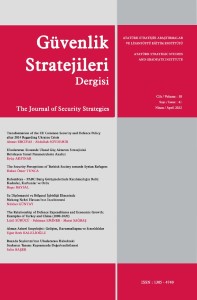Ruanda Soykırımı’nın Uluslararası Hukuktaki Soykırım Tanımı Kapsamında Değerlendirilmesi
The Evaluation of the Rwandan Genocide within the Context of the Genocide Definition in International Law
Author(s): Selin BaşerSubject(s): Criminal Law, International Law
Published by: Atatürk Stratejik Araştırmalar Enstitüsü
Keywords: International Law; Genocide; Elements of the Crime of Genocide; Rwandan Genocide; International Criminal Tribunal for Rwanda;
Summary/Abstract: This study aims to evaluate the Rwandan Genocide within the framework of international law. This evaluation is carried out by revealing how the elements included in the definition of genocide in international law emerged in the Rwandan Genocide. The Rwandan Genocide targeting the Tutsi ethnic group is one of the most explicit, striking, and devastating acts of violence that has occurred since the adoption of the Convention on the Prevention and Punishment of the Crime of Genocide. During the genocide, in addition to the murder of many people, most of whom were members of the Tutsi group, there were also many examples of other violations specified in the definition of crime, such as physical and mental violence, torture, and rape. In this context, the Rwandan Genocide emerges as a typical genocide that clearly embodies the definition of genocide in international law. The Rwandan Genocide and the jurisprudence established by the International Criminal Court of Rwanda are essential reference points on whether other events against various groups and communities can be qualified as genocide.
Journal: Güvenlik Stratejileri Dergisi
- Issue Year: 18/2022
- Issue No: 41
- Page Range: 225-256
- Page Count: 32
- Language: Turkish

